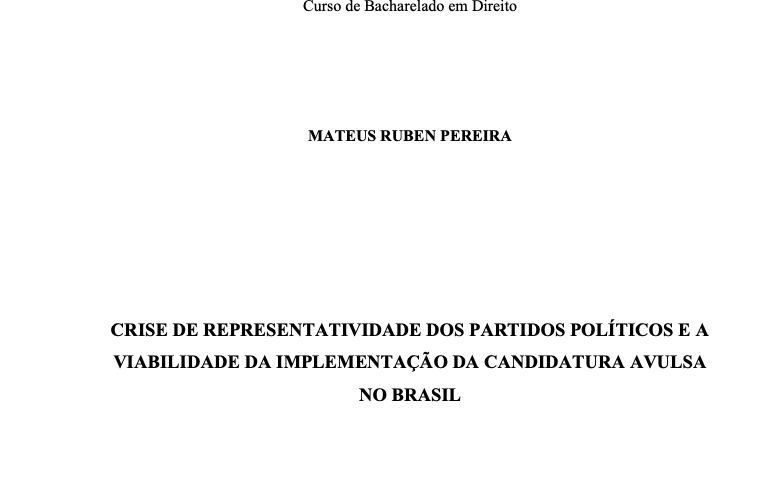Lobbying and Communication: Integrating the narrative as a way of transformation
28 de October de 2020The current Brazilian Federal pact and its political-party problems: promoting corruption and inefficiency in the allocation of public resources in coalition presidentialism
1 de April de 2021Representation Crisis of Political Parties and the Feasibility of Implementing Independent Candidacy in Brazil

The study focuses on the crisis of political parties’ representativeness and the feasibility of independent candidacy in Brazil, based on bibliographic and dogmatic research, seeking theoretical concepts, principles, positive legal norms, and doctrinal and jurisprudential interpretations, as well as political and legal discussions related to Constitutional Law, Electoral Law, and Political Science.
It then analyzes the feasibility of implementing independent candidacy within the Brazilian legal system, which is currently prohibited by Article 14, §3, item V of the Federal Constitution, establishing party affiliation as a requirement for eligibility.
In this regard, the objective of this study is to present reflections and considerations on independent candidacy, as understanding the topic through a critical analysis is essential to ultimately assess whether its application is beneficial to the political-electoral system and the Brazilian legal framework.
The relevance of this research is based on the need for in-depth studies to foster debates on the feasibility of independent candidacy in Brazil, considering that the matter is currently before the Supreme Federal Court (ARE 1.054.490), and the necessity of a political reform that aligns with the expectations of a society disillusioned with the current political-electoral system, examining whether independent candidacy is a viable alternative to the dissatisfaction with political parties and the existing system.
Author: Mateus Ruben Pereira
Source: https://repositorio.uniceub.br/jspui/handle/prefix/15289
